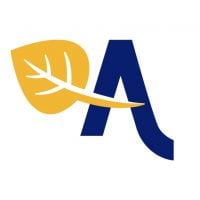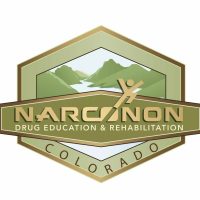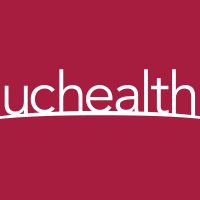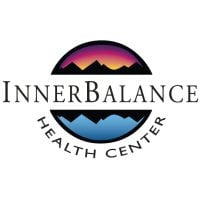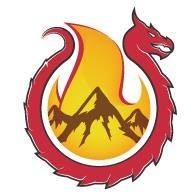Rocky Mountain Serenity Club
Drug Rehab Center in Fort Collins, Colorado
Rocky Mountain Serenity Club is an addiction treatment facility in Fort Collins that provides personalized addiction treatment plans including therapy, medical care, life-skills training and access to 12-step meetings with a focus on promoting long-term addiction recovery and relapse prevention.
About Rocky Mountain Serenity Club in Colorado
Rocky Mountain Serenity Club is an addiction treatment facility located in Fort Collins, Colorado. Founded in 1991, this intensive outpatient facility offers a variety of programs to individuals who are struggling with addiction and substance abuse. The programs offered by Rocky Mountain Serenity Club are designed to promote long-term addiction recovery and equip clients with the skills they need to lead a successful and sober life.
Rocky Mountain Serenity Club provides personalized addiction treatment plans, which may include individual and group therapy, medical and psychiatric care, relapse prevention education, and life-skills training. They also provide a supportive environment, social activities, and access to 12-step meetings for ongoing recovery. The addiction specialists at Rocky Mountain Serenity Club also offer family counseling and an aftercare program that focuses on relapse prevention.
Rocky Mountain Serenity Club is accredited by the Joint Commission, licensed by the State of Colorado’s Department of Public Health and Environment and has received awards from the Colorado Consortium for Prescription Drug Abuse Prevention. Furthermore, Rocky Mountain Serenity Club also offers a pre-admission screening process to ensure they are the best fit for each individual’s recovery needs.
Genders
Ages
Modality
Additional
Conditions and Issues Treated
Substance Abuse Treatment is important when getting sober, as it helps addicts learn the skills they need to live a clean life. There are many different kinds of recovery treatment, including but not limited to medication-assisted therapy, behavioral therapeutic approaches, self-help groups, and counseling. Each treatment has its benefits that help addicts recover.
Counseling can help addicts learn the skills they need to live sober lives. It can be used to treat underlying mental health issues, like depression or anxiety, that could lead to relapse. Counseling can also help people find work, deal with family problems, and learn to manage living without drugs.
With so many people addicted to opioids, we need to help those who want to quit. The cycle begins when opioid addicts take opioids for a painful injury. When someone starts taking their medication differently or in excess, it means they’re addicted and at risk of overdosing.
In , detoxing from these types of treatments is the most effective way to beat this. Most facilities begin with medical assistance and then provide counseling services; rehabilitation follows after successful treatment.
Levels of Care Offered
This center offers a variety of custom treatment tailored to individual recovery. Currently available are Aftercare Support, Drug Rehab, Outpatient, with additional therapies available as listed below.
Alcohol or drug addiction, or co-occurring disorders, are treated in an outpatient program. The patient must attend therapy and other programs at the facility but can return home each night.
Outpatient treatment allows recovering addicts to live at home while receiving addiction treatment. Outpatients can attend group sessions for a few hours per week. Outpatients may also continue to work full time and study/attend school without interruption if they choose.
The accomplishment of completing a drug or alcohol treatment program is just the first step. Once that is complete, aftercare support comes into play. This includes helping people adjust to life without substances outside of guidelines with assistance like getting sober living accommodations and career counseling and AA/NA programs for those who are struggling between sobriety or want continued help in maintaining it once they have completed their initial rehabilitation at an addiction facility.
Aftercare comprises services that help recovering addicts readjust to normal day-to-day activities while working on specific issues. These problems include psychiatric issues, family problems caused by substance abuse, continuing education pursuits if desired during rehab, etc. These can last up to one year+ depending on what’s needed most urgently upon completion of earlier stages.
Therapies & Programs
Different people react differently to various treatment options. Some drug rehabilitation centers offer individualized treatment that caters to the specific needs of a drug addict. The best treatment option varies on an individual depending on the type of drug abused, life history, medical condition of the person, social circumstances, and the environment they live in now.
When a person enters drug rehab, they usually have anti-drug associations such as withdrawal symptoms, stress, cravings, etc. The first step of drug rehab is to detoxify the body from any residual substances in it. Drug rehabilitation centers usually employ trained medical professionals to help in this process. Usually, the initial detoxification lasts for five days, where the person is monitored under close supervision.
Couples therapy is a treatment method used to help couples in which at least one member of the couple has a drug addiction. The treatment is designed to help the couple strengthen their relationship to minimize the effects of drug addiction on their lives and promote healthy communication between them.
Couples therapy can be used whether the addicted partner is using drugs or in recovery. It helps the couple create healthy communication and coping skills to minimize the problem-solving abilities of one partner, which can then be directed at solving issues related to their addiction. It also helps couples address problems that may be related to drug addiction. Couples therapy can help couples feel like a team and not feel like their partner is the problem.
Couples therapy is very challenging for both the drug addict and their partner. It requires an intense commitment between the two individuals to participate in the sessions and the homework assigned between sessions.
An additional benefit of couples therapy is that it can help make other types of treatment, such as 12-step programs, more effective.
Family therapy sessions typically involve the addict and their family members. During these sessions, a therapist will work with everyone involved to help them understand addiction and find healthy ways of coping without substance abuse.
Some addicts might feel embarrassed about their substance abuse problems. By encouraging family members to attend these sessions, therapists can show addicts that they’re not alone in dealing with addiction. Therapists can also work with family members to help them understand addiction and learn how to offer support and encouragement to their loved one as they deal with substance abuse issues.
Attending group therapy at Rocky Mountain Serenity Club in , is a useful way for those seeking sobriety to realize they aren’t the only one going through it.
This is when a group of people on different recovery phases get together and talk about what they’re going through, their triggers, successes, and failures. This can include alternative types of therapies too! Group therapy may occur on an outpatient or inpatient basis with groups that have no pre-existing relationships outside the session, unlike support groups where everyone already knows each other beforehand.
Additional Details
Specifics, location, and helpful extra information.
Fort Collins, Colorado 80524 Phone Number(970) 493-4715 Meta DetailsUpdated November 25, 2023
Staff Verified
Rocky Mountain Serenity Club Patient Reviews
There are no reviews yet. Be the first one to write one.
Fort Collins, Colorado Addiction Information
The Centennial State has slipped to a ranking of 12th in the country for drug abuse. Each year around 24% of the state's population uses illegal drugs while nearly 5% of its population abuses alcohol. Substance-related deaths in Colorado were responsible for 15.12% between 2008 and 2017. Fortunately, Colorado drug and alcohol addiction treatment are available to help a person overcome addiction.
16,000 people aged 12 or older in Fort Collins used illicit drugs in recent years. This is a significant increase from 11,000 people who used illicit drugs in 2014. Statistics show that 25% of people get a DUI in Fort Collins. Many rehab centers offer a combination of inpatient and outpatient services. The important thing is to find a facility that will meet the specific needs of the individual.
Treatment in Nearby Cities
- Burlington, CO (171.4 mi.)
- Pagosa Springs, CO (252.4 mi.)
- Manitou Springs, CO (119.5 mi.)
- Alamosa, CO (219.9 mi.)
- Antonito, CO (247.8 mi.)
Centers near Rocky Mountain Serenity Club
The facility name, logo and brand are the property and registered trademarks of Rocky Mountain Serenity Club, and are being used for identification and informational purposes only. Use of these names, logos and brands shall not imply endorsement. RehabNow.org is not affiliated with or sponsored by Rocky Mountain Serenity Club.


